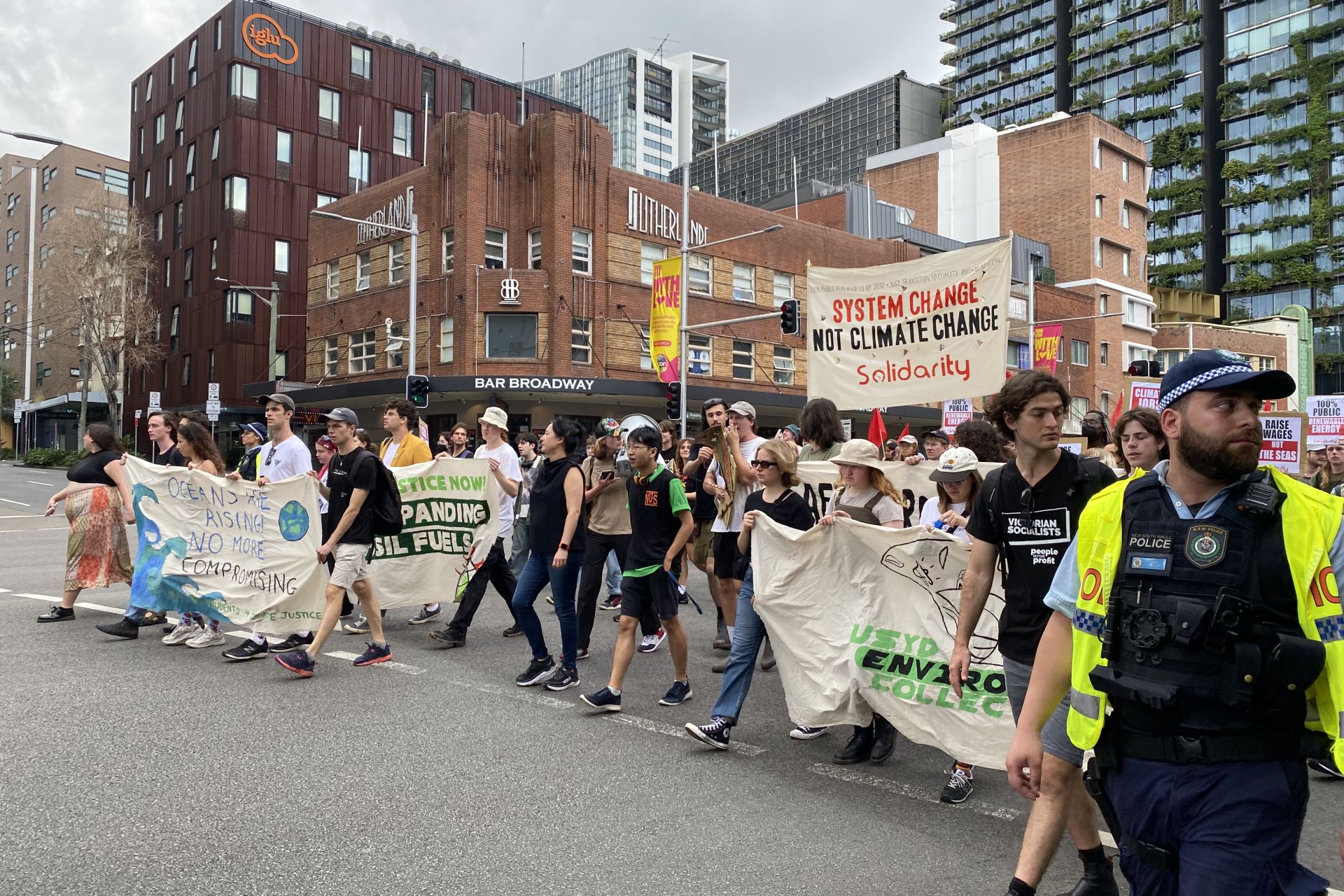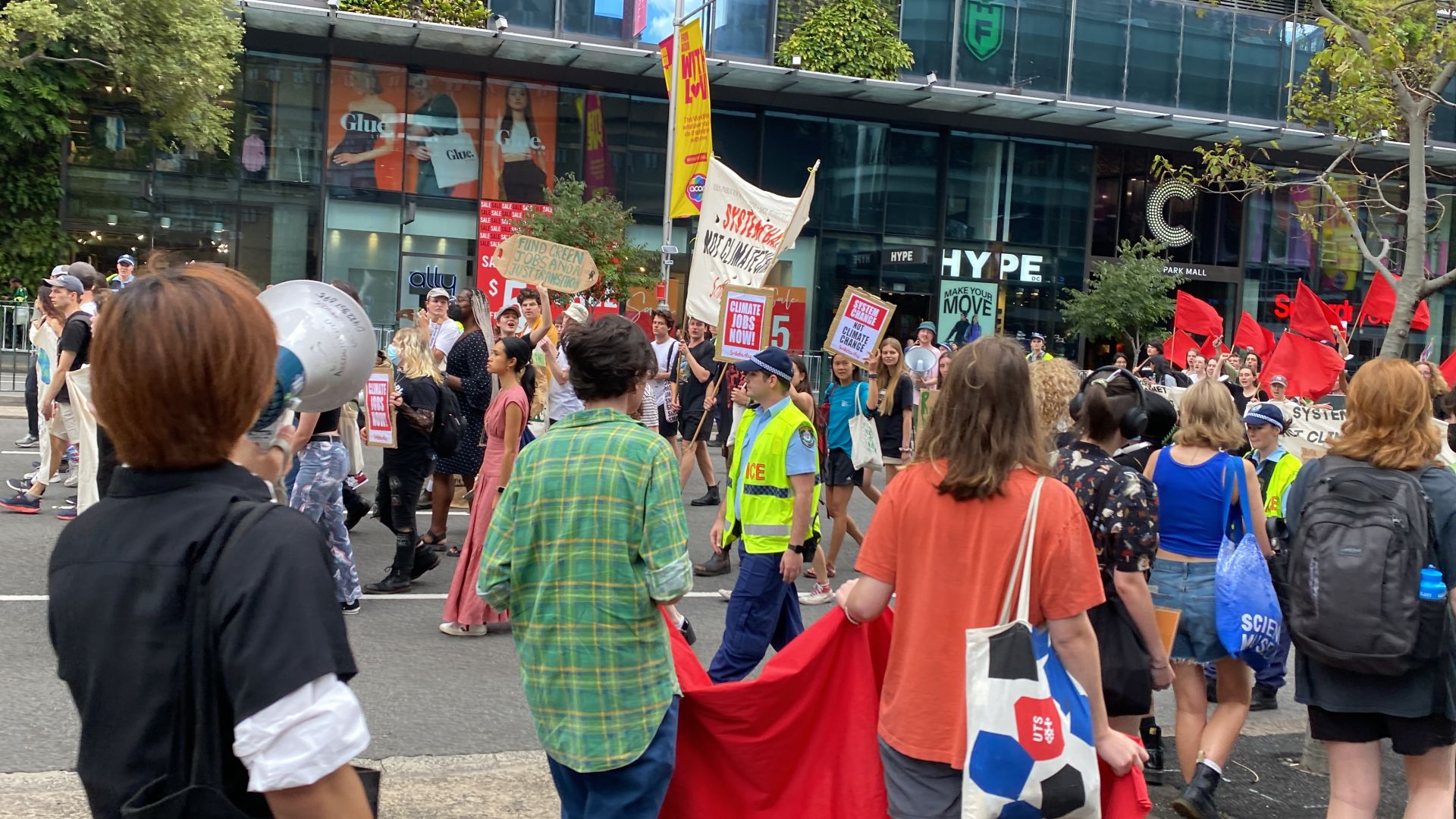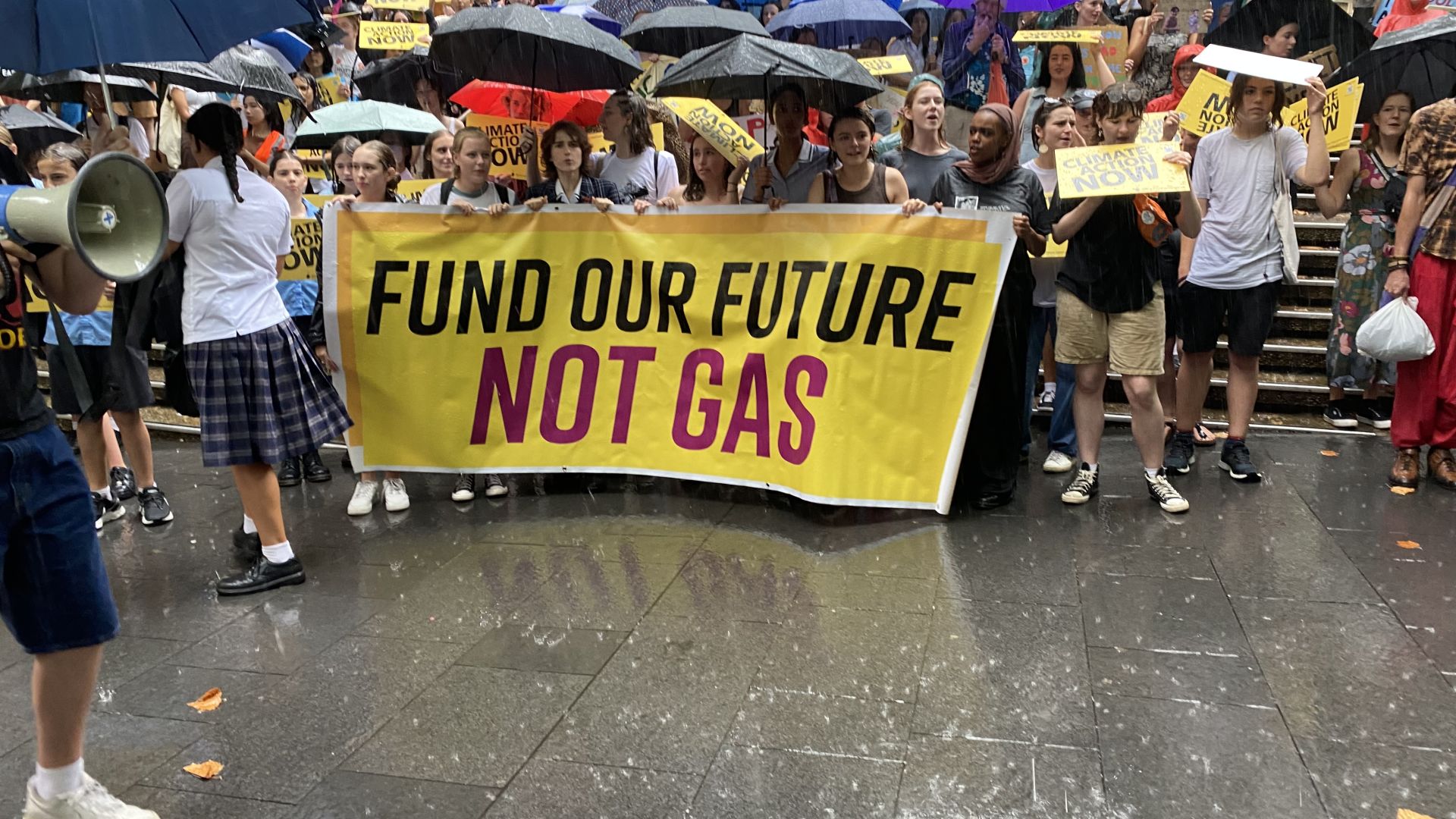UTS students joined the global climate strike with thousands of students partaking in this year's School Strike 4 Climate Rally.
Speaking to a small crowd outside Building 1, UTS Students Association Environmental Officer, Boris Tam, criticised the exploitation of Aboriginal land by energy giants and the implementation of the safeguard mechanism. The safeguard mechanism is a policy that aims to cap carbon emissions on 215 fossil fuel sites.
“Their joke of a safeguard mechanism and the recent approval to allow Santos to open new gas wells in the Surat Basin sends a message to fossil fuel and gas companies that Australia is still open to their business,” he said.
“[It is] a message that the government welcomes countless emissions on shore and overseas as long as they can receive some sort of profit. It’s also a message that the climate is just an afterthought, that our future is not as much of a priority as keeping corporations happy.”
The heavily criticised safeguard mechanism is a climate bill introduced by the Australian Government, built on the same bill introduced by former Coalition Environment Minister Greg Hunt eight years ago. Many have criticised the bill as it allows fossil fuel companies to purchase carbon credits to offset in the event emission exceeds the set cap.

Similar sentiments were shared by the UTSSA Queer Officer, Sara Chaturvedi, who spoke to the crowd about how climate change threatens frontline communities in developing countries as well as criticising corporations for green-washing practices while exploiting workers and destroying Indigenous land for profit.
“We need action now,” she says.
The School Strike 4 Climate Rally is a yearly rally which sees thousands of students, from primary to university, rallying in most major cities in Australia, calling for the Australian Government to achieve net-zero by 2030, the use of renewable energies, as well as a just transition for workers employed in the fossil fuel industry and their communities.
“Indigenous sovereignty and land rights, welfare for the poor and unhoused, accountability, and I’m here just to beg, please just fucking listen,” Chaturvedi says.
“Why am I put into debt at university to try my luck at a future which isn't guaranteed. Out of this desperation we come out here to the streets and to anyone listening to this speech I say, do not look away. Listen to us”.
“Climate action is Indigenous liberation, climate action is voices for the poor, ethnic, queer, religious, disabled, youth, oppressed, it is for all. Climate action is for justice,” she says.

The UTS contingent later joined the rest of the university contingent that marched from Fisher Library at the University of Sydney, down Broadway to Town Hall.
In a sea of umbrellas, speakers outside Town Hall spoke of the broader impact climate change has had, with several Aboriginal speakers condemning both past and present federal governments for their relationship with fossil fuel companies.
18-year-old Wiradjuri climate activist, Ethan Lyons, criticised the Australian Labor Party’s climate targets by calling them ‘unambitious’ and demanding more action and less ‘green-washing’.
“We are here to demand five simple things from the government,” he said.
“First, no new coal, oil and gas including the Narrabri and Kurri Kurri gas projects; 100% public renewable and exports by 2030; the funding of a just transition for fossil fuel workers and their communities; more carbon cuts, no offsets; and the resourcing of First Nations solutions to the climate crisis that guarantee care for country.”
A sudden downpour did not stop speakers from speaking out on the intersectionality of climate change, with one speaker speaking about public housing and residents sleeping in stairwells to avoid the heat due to a lack of air-conditioning.
The 16-year-old founder of Coffs Harbour Climate Alliance, Taj Abduallah, read out a poem calling for climate justice.
The rally eventually moved away from Town Hall before finishing up at Hyde Park.
All photos by Tyberius Seeto


 -
-